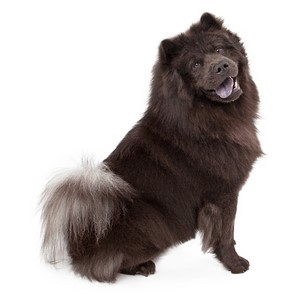General Health Issues in Chow Chow
A big part of a pet’s general wellbeing is their health. Regrettably, some breeds are more likely to experience certain conditions than others. These breeds are: Pugs, Bulldogs, Beagles, Boxers
Nevertheless, they’re not the only ones. Prior to selecting to embrace or purchase among these breeds you should learn about the possible illness they can be born with. Health problems can begin affecting pets while they’re pups, adolescent pets or adult pets.
If you own among these breeds (including the ones we’ll discuss listed below) it is necessary to be familiar with health problems that might affect your dog. Any changes in behaviour or physical look ought to be discussed with your veterinarian.
Tests can eliminate or validate concerns and if essential, your vet should advise a plan to handle the signs and reduce complications.
Bloating in Dogs
Pet dog breeds which are most likely to experience bloating: Typically, larger breeds such as Fantastic Danes and Saint Bernards.
What happens when a pet dog experiences bloating: When the stomach twists and traps gas inside, the dog’s internal organs can suffocate. It’s stomach swell with liquid and gasses as the response is triggered by the shape of it’s chest.
How to assist prevent and handle bloating in pet dogs: If you happened to own a giant or big pet breed, it will assist to place it’s food in a raised bowl or make use of an elevated feeder. Also it is recommended you check your dog’s stomach, regularly. If it seems inflamed or tight a careful assessment of your animal can be carried out by your local vet.
Hip or Elbow Dysplasia in Dogs
Pet breeds which are more likely to suffer from hip or elbow dysplasia: Larger dog breeds such as Golden and Labrador Retrievers, German Shepherds.
What takes place when your canine experience hip or elbow dysplasia: The abnormal formation of the hip socket in your dog causes major pain in your pet will result in hip dysplasia. As a result of hip dysplasia, your pet can suffer from lameness, arthritis and loss of movement. Elbow dysplasia, which can, likewise, trigger lameness, happens in the joints of the front legs.
How to assist avoid and manage hip dysplasia in canines: One of the major factor for hip dysplasia in pet dogs is overfeeding and the other one is lack of routine exercise for your canine.
How to help avoid and manage elbow dysplasia in pets: Medication and surgical treatment are the two options to deal with elbow dysplasia.
Arthritis and Joint Pain in Dogs
Arthritis and joint problems in pets are not specific in any pet breeds. When canines grow older it is extremely common for them to experience arthritis and joint problems. Fortunately is, arthritis and joint problems are typically treatable. Joint issues in dogs, manifesting as lameness, can likewise occur earlier, specifically in larger breeds.
How to assist your canine with arthritis and joint discomfort: Regular exercise, weight management and discomfort medication can all help manage the condition and minimize the discomfort.
Common Eye Diseases in Dogs
Pet breeds that struggle with glaucoma and cataracts early in life are: Beagles, Chow Chows and Poodles. The majority of other pet dog breeds will struggle with glaucoma and cataracts later on in life as it becomes part of aging.
Progressive Retinal Atrophy (PRA) also called Progressive Rod and Cone Degeneration (PRCD) in Pet Breeds: This group of eye illness in canines can start impacting at an early age, which can eventually lead to loss of sight in both eyes.
Common Heart Diseases in Dogs
In general, cardiovascular disease in pet dogs are not specific to particular breeds or canine sizes. Routine medication is frequently needed to treat the problem. Sometimes, workout needs to be kept to a minimum.
Congestive heart failure (CHF) in pets can be caused by dilated cardiomyopathy (DCM), mitral valve disease (MVD) and atrioventricular valvular insufficiency (AVVI).
- Dog Breeds that are normally experience Atrioventricular Valvular Insufficiency (AVVI) in Pet Dogs: Very typical in small to medium sized pet dog breeds such as Cavalier King Charles Spaniels, Mini and Toy Poodles, Schnauzers, Chihuahuas and Yorkshire Terriers.
- Dog Breeds that are most typically suffer from Dilated Cardiomyopathy (DCM): Doberman Pinschers, Great Danes, Boxers and Cocker Spaniels.
- Canine Breeds that are usually affected by Mitral Valve Disease (MVD): More typical in smaller breeds e.g. Poodles, Yorkshire Terriers, Pugs and Pomeranians.










